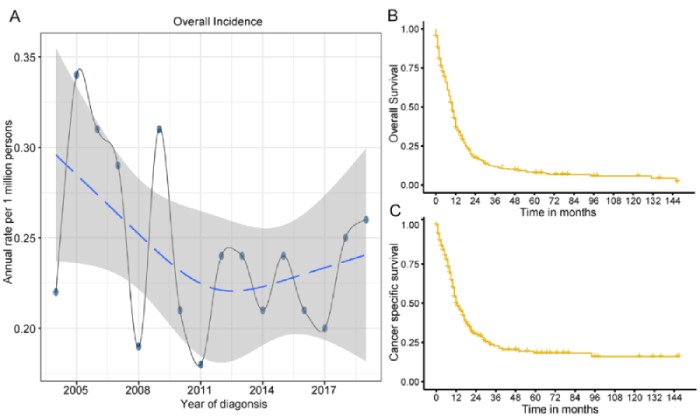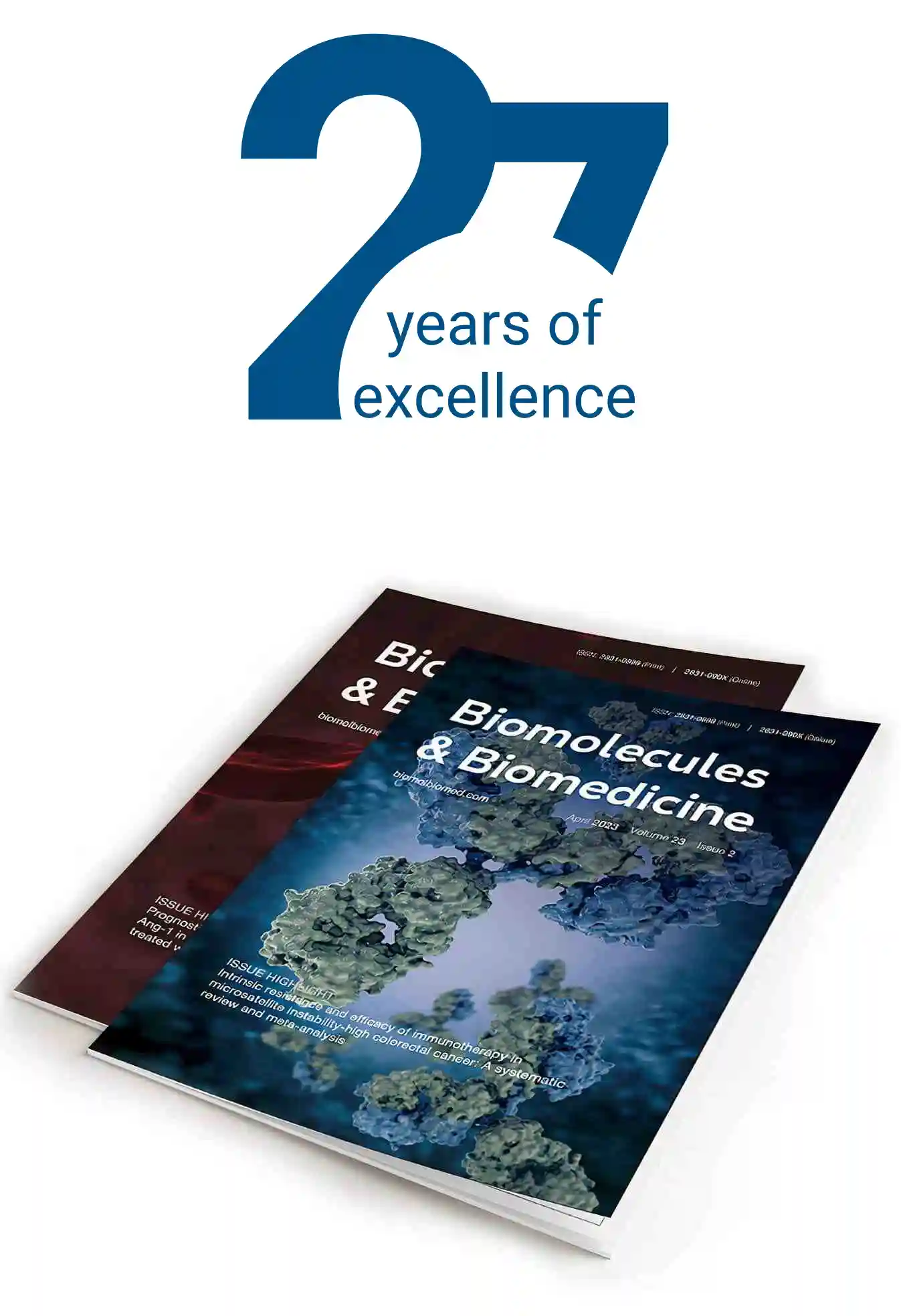Epidemiology, prognostic factors, and survival analysis in small cell esophageal carcinoma: A population-based study with external validation
DOI:
https://doi.org/10.17305/bb.2024.11090Keywords:
Esophageal carcinoma, small cell carcinoma, epidemiology, prognosis, treatmentAbstract
Small cell esophageal carcinoma (SCEC) is a poorly differentiated esophageal neuroendocrine neoplasm with a poor prognosis. This study aimed to explore the factors and treatment approaches influencing the prognosis of SCEC. In this retrospective study, we collected data from the 18 Surveillance, Epidemiology, and End Results (SEER) registries cohort between 2004 and 2019, as well as from a Chinese institutional registry covering the period from 2012 to 2022. We assessed the annual percentage change (APC) in incidence of SCEC. Kaplan-Meier and Cox regression analyses were conducted to evaluate survival outcomes. Additionally, nomograms were developed for overall survival (OS) and cancer-specific survival (CSS) in the SEER cohort for SCEC and validated in an independent Chinese cohort. This analysis included 299 SCEC patients from the SEER cohort and 66 cases from the Chinese cohort. During the period of 2004–2019, the incidence of SCEC reached a plateau, with an APC of -1.40 (95% confidence interval [CI]: -4.3 to 1.40, P > 0.05). Multivariable Cox regression analysis revealed that age, distant metastasis, and chemotherapy were independent factors for OS, while distant metastasis and chemotherapy were independent factors for CSS. The nomograms developed for OS and CSS in SCEC exhibited remarkable accuracy and reliable predictive capacity in estimating 1-year, 3-year, and 5-year OS and CSS. SCEC is a rare malignancy with aggressive behavior. Distant metastasis is significantly associated with worse OS and CSS in patients with SCEC. Currently, chemotherapy remains the primary treatment approach for SCEC.
Citations
Downloads

Downloads
Published
License
Copyright (c) 2024 Jiahao Zhu, Benjie Xu, Yuanyuan Li, Xiangyi Pang, Shengjun Ji, Jie Lian, Haibo Lu

This work is licensed under a Creative Commons Attribution 4.0 International License.









